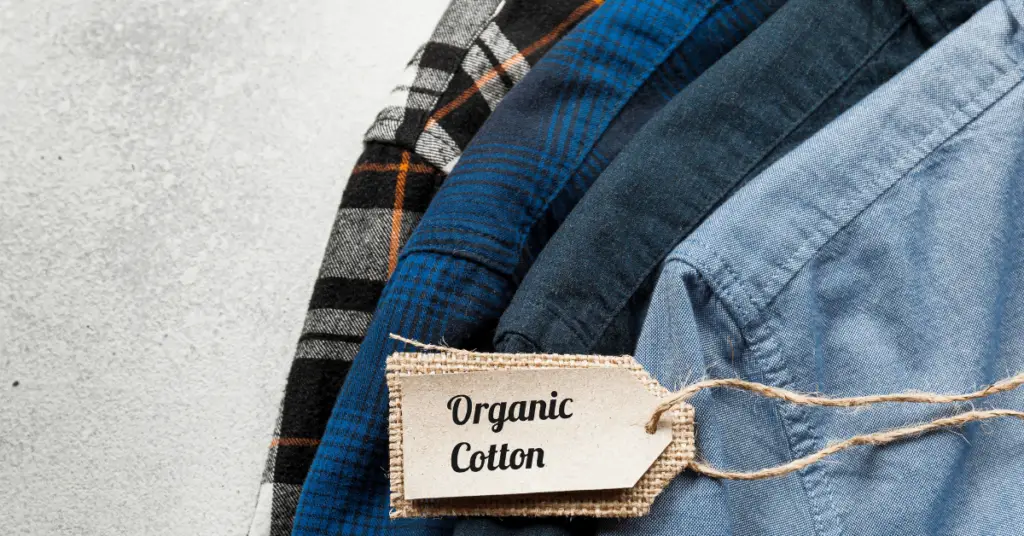We all know that oil refining is one of the most prevalent causes of global warming. Most of us don’t realize, however, that many of the fibers in the clothing we wear (for example polyester and Dacron) are made from petroleum.
The famed polyester suit coat is actually made from polyethylene terephthalate (PET), and much of our basic clothing contains at least some nylon—another synthetic clothing material—especially socks and underwear.
All of these petrochemicals, so widely used in clothing, contribute to global warming gases and affect our health. So you say you’ll wear cotton? That’s a noble thought, but switching to cotton alone isn’t enough.
Cotton, the most used clothing fabric in the world, represents a $300-billion global market. Cotton crops use more petroleum-derived fertilizers and pesticides than any other single crop, including about one-quarter of all agricultural insecticides, applied globally each year. In addition, according to the EPA, 7 of the top 15 petrochemical-based pesticides used on U.S.cotton crops are known as potential human carcinogens.
All of this spells bad news for our health, the health of people who work with these crops, and the health of our planet in terms of global greenhouse gas emissions. We can certainly make a difference by simply buying organic cotton socks, T-shirts, and pajamas. You can find organic clothing staples in comfortable organic cotton or hemp at green retailers like Whole Foods Market, online.
Some of the biggest names in clothing today, including Levi Strauss, Victoria’s Secret, Esprit, Patagonia, and Timberland, also offer organic cotton products, as do mass retail outlets such as Wal-Mart and Target.
And while more new designers are using organic cotton, some cutting-edge fashion designers like Linda Loudermilk are using alternative renewable fabrics, made from materials such as bamboo and soya. Indeed, many new eco-friendly textiles are popping up on the clothing racks.
Here are some natural and renewable clothing materials: Soybean fabric is a new fiber made from leftovers from soybean oil and tofu production. Durable and strong, but also soft and lustrous, soy fiber is stronger than wool, almost as warm, and requires no drycleaning.
Soy cashmere is the world’s first cloth made from soybeans. The eco-friendly fiber is made from the unused protein of soybean oil, tofu, and soymilk production. Called “cashmere” because of its incredible softness, the fabric is blended with organic cotton and spandex.
Bamboo, the fastest growing plant in the world, makes soft, breathable, antimicrobial clothing that keeps moisture away from your body. This sustainable, natural resource thrives naturally without the use of any pesticides or fertilizers.
Hemp fabric feels similar to linen. Durable and insulating, it’s comfortable in all temperatures. The fabric is also available in wool and silk blends.
Tencel is the trade name for a manmade, natural fabric also known as lyocell that is cool and breathable like rayon. It’s made from the cellulose of farm-raised trees, grown in soil deemed unsuitable for food. Recycled plastic bottles are being processed into fiber to make yarns and textiles, made popular by the environmentally aware clothing company Patagonia.
Several online retailers featuring hip clothing made from these and other organic materials include upstarts like ShopEnvi, Bamboo Styles, Grassroots Natural Goods, Kait, and Gaiam.
Choosing organic clothing is better in so many ways and totally worth it. Made from organically grown cotton and other organic, natural, and sustainable fibers may be one of the best and easiest things you can do for the Earth and your health.
The wide range of great new green styles and fashions emerging is truly inspiring to all eco-fashionistas. By supporting green apparel manufacturers and avoiding purchases of petroleum-derived fabrics, you are helping to ensure a healthier future with reduced dependency upon fossil fuels.

Erzsebet Frey (Eli Frey) is an ecologist and online entrepreneur with a Master of Science in Ecology from the University of Belgrade. Originally from Serbia, she has lived in Sri Lanka since 2017. Eli has worked internationally in countries like Oman, Brazil, Germany, and Sri Lanka. In 2018, she expanded into SEO and blogging, completing courses from UC Davis and Edinburgh. Eli has founded multiple websites focused on biology, ecology, environmental science, sustainable and simple living, and outdoor activities. She enjoys creating nature and simple living videos on YouTube and participates in speleology, diving, and hiking.

